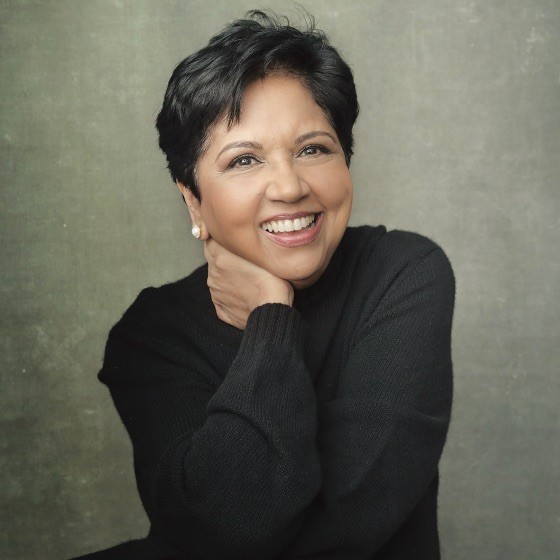Emotional IQ is crucial to developing meaningful relationships, maximizing your potential, and being successful in both your personal and professional spheres. If you’re seeking more information on the topic, this article discusses the 8 best books on emotional intelligence.
Emotional intelligence is the ability to understand, control, and use emotions in positive ways. These best books on emotional intelligence will help you become more aware of your emotions and how they affect your behaviors. This list includes books on controlling emotions and highly-rated books to increase intelligence.

When you develop your emotional intelligence, it will be easier for you to build and maintain sustainable and positive relationships. Moreover, you will be able to handle stress and resolve conflicts more effectively. All these will help you achieve your personal, professional, and social goals.
8 Best Books on Emotional Intelligence
While multiple writers have analyzed emotional IQ, these books stand out for their originality and impact. They also have actionable insights to increase and master your emotional intelligence.
1. Emotional Intelligence: Why It Can Matter More Than IQ by Daniel Goleman
Daniel Goleman is a psychologist, author, and science journalist. He reported on the behavioral sciences for The New York Times for 12 years. He published his pathbreaking book Emotional Intelligence in 1995.
Who is it best for
Written from an organizational perspective, the book will primarily benefit business leaders, managers, and employees.
Key learnings
Drawing on research from neuroscience, psychology, and business, this Daniel Goleman emotional intelligence book argues that emotional IQ is more important than cognitive intelligence to succeed in life. The book defines emotional intelligence as the ability to become aware of our feelings and those of others, manage our emotions, motivate ourselves, and build positive relationships.
The Daniel Goleman emotional intelligence book that popularized the subject among the general public, it’s engaging and well-written. Defining it as a set of skills rather than a personality trait, Goleman’s book doesn’t restrict itself to theory. He offers actionable suggestions that anyone can follow.
Stating that anyone can develop their emotional intelligence through effort and practice, this Daniel Goleman emotional intelligence book provides useful tips and frameworks. These can help readers improve empathy, impulse control, and social abilities, among others.
2. Emotional Intelligence 2.0 by Travis Bradberry & Jean Greaves
Drs. Travis Bradberry and Jean Greaves are the cofounders of a global think tank and consultancy, TalentSmart®. One of the world’s most trusted providers of emotional intelligence training and tests, they serve over 75% of Fortune 500 companies.
Who is it best for
The book will help executives, business leaders, human resource teams, and others who want to improve their emotional intelligence.
Key learnings
One of the best books on emotional intelligence, Emotional Intelligence 2.0 uses empirical research to provide useful answers. Drawing on data from more than 500k individuals, the authors find interesting emotional IQ patterns across gender, generations, and cultures.
If you’re looking for books on controlling emotions, Emotional Intelligence 2.0 will be of help. It has more than 36 strategies for building emotional intelligence in the four key areas of self-awareness, social awareness, self-management, and relationship management.
Newer editions of the book also give you access to an online self-assessment test. The authors also have easy-to-follow guidance to improve those areas where you may not have scored well.

3. Dare to Lead by Brené Browm
Brené Brown is an American author of six number-one New York Times bestselling books. She is a professor and podcast host, widely known for her 2010 TEDx talk.
Who is it best for
Dare to Lead will be beneficial to leaders and managers who want to navigate an increasingly uncertain and complex world.
Key learnings
What makes it one of the best books on emotional intelligence is that it focuses on vulnerability and its role in emotional IQ. Moving away from the conventional tenets, Brown offers a new framework for bold leadership rooted in authenticity.
With a new take on leadership, Dare to Lead encourages l
eaders to be authentic, which will better resonate with those around them. Being imperfect is great, according to Brown. Vulnerability is what generates innovation and creativity.
Along with vulnerability, Brown urges leaders to focus on daring greatly, courage, and connection. The book has several practices and exercises for readers to
develop their leadership and courage skills.
4. The EQ Difference: A Powerful Plan for Putting Emotional Intelligence to Work by Adele B. Lynn
Adele B. Lynn is the founder of The Adele Lynn Leadership Group, a consultancy that offers training to several Fortune 500 firms.
Who is it best for
Anyone who wants to understand emotional intelligence and apply its principles to succeed in their professional life.
Key learnings
The EQ Difference explains how your emotions can affect your values, relationships, and performance in the workplace. Going beyond academic explanations, the book offers team-focused exercises and self-assessment tools to improve and leverage emotional intelligence.
One of the best books on emotional intelligence, it offers practical suggestions and tips that will help you develop your emotional quotient and that of your colleagues. You will find real-life workplace examples that beautifully illustrate the recommendations.
The book reveals the positive impact of emotional IQ in several environments. This makes it a functional tool to improve productivity, morale, and employee retention.
5. Leadership: The Power of Emotional Intelligence by Daniel Goleman
Psychologist, author, and science journalist, Daniel Goleman is one of the leading thinkers on emotional intelligence and how it can improve organizations and individuals.
Who is it best for
Coaches, leaders, human resources officers, educators, and managers who are interested in guiding and motivating others.
Key learnings
Another Daniel Goleman emotional intelligence book, Leadership: The Power of Emotional Intelligence contains two decade’s worth of his writings. Each chapter contains useful suggestions and devices to help the reader to improve their self-awareness and better manage their emotions.
The book aims to help you make more productive and impactful decisions while being emotionally strong and balanced. Using the five key components of emotional IQ, Goleman urges leaders to build stronger and more inspiring relationships with their colleagues.
Considered one of the best books on emotional intelligence, it offers protocols to build high-performing organizations based on trust. Put together, the ideas in the book help you create a more positive environment at the workplace.
6. The 7 Habits of Highly Effective People by Stephen Covey
An American author, educator, speaker, and businessman, Stephen Covey is a world-renowned author of several motivational books. He was the vice-chairman and co-founder of Frankly Covey, a global professional services firm.
Who is it best for
For students, executives, leaders, and anyone else who wants to improve their life through the right actions.
Key learnings
Even though it wasn’t a specific domain at the time, Stephen Covey’s The 7 Habits of Highly Effective People is a valuable resource on emotional IQ. The reason it can be thought of as among the best books on emotional intelligence is that it’s a guide to a more fulfilling and effective life.
The book is based on the simple yet profound idea that you can change your life by changing your mindset and habits. By encouraging people to take responsibility for their actions to getting them to think of win-win scenarios, the book is filled with practical suggestions.
Covey emphasizes the need for actively listening to others to better understand them. This book will also teach you the importance of taking care of yourself physically, emotionally, and mentally.

7. The Language of Emotions: What Your Feelings Are Trying to Tell You by Karla McLaren
A pioneer in the field of empathy, Karla McLaren, M.Ed is an award-winning researcher, empathy expert, workplace consultant, and researcher.
Who is it best for
Anyone who wants to better understand their emotions and improve their relationships with others.
Key learnings
McLaren’s book examines the nature of emotions and how you can use them for interpersonal awareness, deeper self-knowledge, and profound healing. She terms emotions as ‘informational messengers’ that are trying to convey our wants, needs, and values. The book discusses in detail the various types of emotions such as basic, complex, and spiritual emotions, and their role in our lives.
Rightfully rated as one of the best books on emotional intelligence, it has several strategies and exercises for understanding our emotions, knowing their messages, and conveying them in constructive ways.
The most important takeaway from this book is that we should accept and welcome all emotions including the negative ones. They contain much-need wisdom and information. With compassionate and practical advice, this book is a must-read for anyone interested in emotional intelligence.
8. The Emotionally Intelligent Manager: How to Develop and Use the Four Key Emotional Skills of Leadership by David R. Caruso and Peter Salovey
A management psychologist, David R. Caruso is a research affiliate with Yale University’s Department of Psychology. The current president of Yale University, Peter Salovey is a renowned American social psychologist.
Who is it best for
Executives, managers, and leaders who want to inspire and motivate their team members to be more cohesive, innovative, and productive.
Key learnings
The fundamental principle of the book is that emotional intelligence is crucial for
becoming an effective leader. The authors suggest a four-part hierarchy of important emotional skills. These include identifying, using, understanding, and managing emotions.
Consistently ranked as one of the best books on emotional intelligence, it has concise frameworks that managers can apply in their workplace.
Learn More on Leadership and Emotional Intelligence
As all the best books on emotional intelligence say, it’s a crucial leadership skill. Maven has an excellent range of leadership courses that emphasize the role of emotional intelligence in improving professional performance. These include:
Conducted by instructors with a deep understanding of emotional intelligence, these personalized learning experiences come in convenient formats.
Click here to register.









